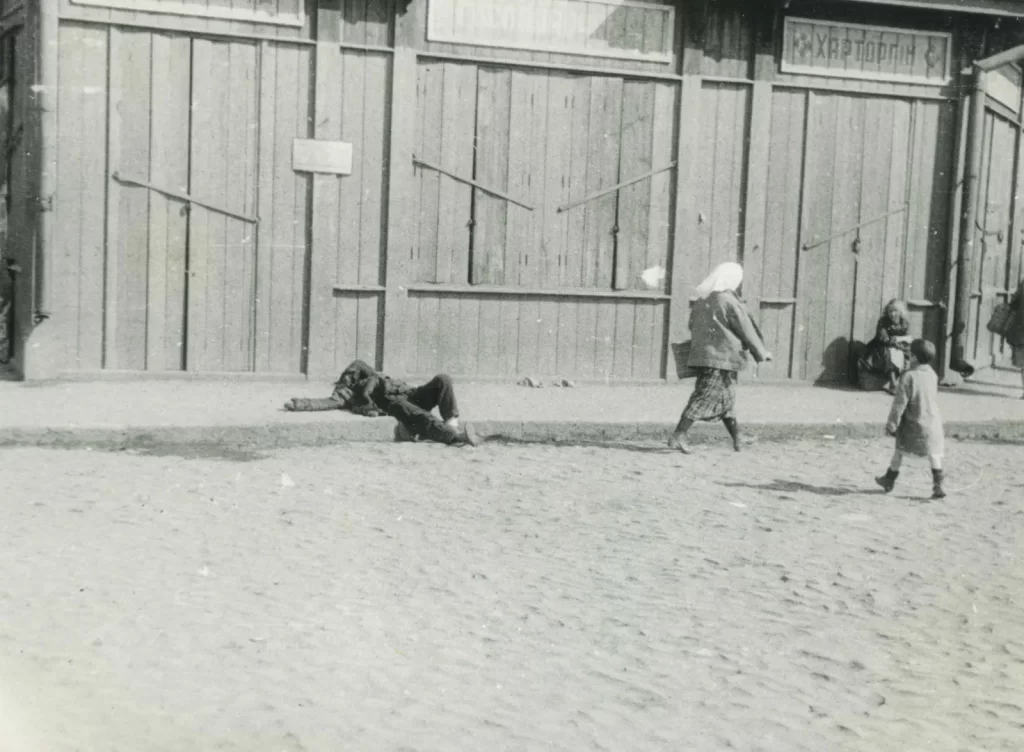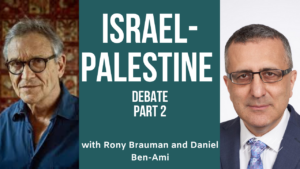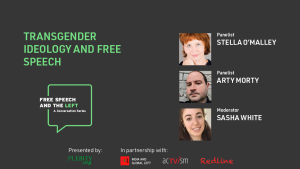
Famine in Kharkov (Kharkiv) in 1932-1933 Alexander Wienerberger photographer (Public domain)
“We may have been fighting the wrong enemy all along. But while we’re here, we should go after the bastards now, ’cause we’re gonna have to fight ’em eventually.” Gen George Patton, referring to Russia and quoted in the 1987 book Cannon fodder: growing up for Vietnam
How can it be that Germany just wrote a hate speech law which criminalizes speech that disputes hate speech and is itself hate speech?
In an age of unspeakable atrocities that included the Holocaust, the firebombing of cities, atomic bombs that destroyed Hiroshima and Nagasaki, the terrible famine that killed millions throughout the Soviet Union in the early 1930s stands out.
Estimates of the dead range from five million to as many as seven million people. It struck across multiple regions, different ethnic groups, across social classes and although most severe in rural areas, it affected people in the cities as well.
Kazakhstan suffered the most proportionately, where up to 1.5 million Kazakhs died–a quarter of the population.
Ukraine, breadbasket of the Soviet Union, was hit the hardest.
The causes of the famine have been part of a long-standing debate.
The debate is not as to whether the famine was a natural disaster or man-made. It is not disputed that the famine was caused by human acts. The debate is whether the famine was a premeditated act of murder that targeted one particular ethnic group, Ukrainians, and if it is correctly identified by the word genocide.
“The German parliament passed an amendment that may put people who deny any genocide or war crime, regardless of time or place, behind bars for up to 3 years.’’ –German Parliament Amends Law to Make Denial of War Crimes Punishable – David Boos
According to historian Ronald Suny on page 246 of his book The Soviet Experiment, Russia, the USSR, and the Successor States, “[T]he famine was a particularly vicious episode in the general collectivization campaign, a badly conceived and miscalculated policy, but it was not directed specifically against ethnic Ukrainians.”
Unlike the Holocaust there is zero evidence that this famine was the result of a policy of willful murder rather than the tragic result of a series of terrible and cruel decisions. Neither is there evidence that any one ethnic group was targeted.
Rather than specifically targeting ethnic Ukrainians, the famine affected people of all ethnicities across a huge swath of the Soviet Union. At the time of the famine, Ukrainian nationalists had not yet cleansed the country of its large Jewish and Polish populations. These groups, inside Ukraine, were as affected by the famine as their ethnic Ukrainian neighbors.
In Kazakhstan, where a quarter of the population died far from Ukraine, history textbooks now place the blame for the 1930-33 famine on Filipp Isaevich Goloshchekin, leader of the Communist Party at the time. The focus on Goloshchekin is considered by some as “[part of] an anti-Semitic strain that makes repeated reference to Goloshchekin’s Jewishness as a method of explaining the disaster.“
In his 2008 research paper The Soviet Famine of 1932-1933 Reconsidered, historian Hiroaki Kuromiya references the ongoing historical debate and summarizes his conclusion: “…did Stalin cause the famine in order to kill millions…was the famine a Ukrainian ethnic genocide… I argue that there is not enough evidence to answer in the affirmative.
As Clara Weiss states “..the most important historians of the famine in recent decades, after evaluating thousands of documents and statistics, have concluded that the famine in Ukraine in 1932-1933 was not a genocide.”
Why does this even matter?
In far right and neo-Nazi circles of Ukraine, Poland, Germany and elsewhere, the idea that the famine was a willful act of murder has been a central narrative that combines anti-semitism with historical anti-Soviet hatred. For many people of the former Soviet Union and for Germany under the Third Reich, Communists and Jews have always been considered one and the same thing. The pogroms that targeted Jews throughout pre-war Eastern Europe and the mass slaughter of Jews during WWII were commonly justified with accusations that the Jews were Soviet collaborators.
Why is the word ‘Holodomor’ political?
The word Holodomor was introduced by Ukrainian nationalists to refer to the 1930s famine. It is explicitly meant to refer to an act of genocide and to put the famine on a par with the Holocaust.
Only recently has this long-standing far-right narrative lost its taboo and entered mainstream liberal discourse.
In Germany, this narrative is now not only acceptable, it is mandated.
Specifically, Germany just enacted two important bits of legislation that together modify their existing hate speech laws to criminalize questioning whether the famine of the 1930s can be correctly described as genocide.
In November of this year, the German Parliament added language that amended paragraph 130 of their penal code to make it a crime to “publicly or in an assembly” condone, deny, or grossly trivialize “genocide, crimes against humanity or war crimes.”
Shortly after that, still in November 2022, “the German Bundestag approved without a dissenting vote a joint motion of the governing parties..which recognizes the famine in Ukraine in 1932-1933 as a genocide and so-called “Holodomor.”
In doing so, Germany ignored the overwhelming weight of scholarly evidence regarding the causes of the famine, and decreed by law which position was the historical truth. They took one side of a historical debate and criminalized the speech of those who disagreed with it.
In a one-two punch German legislators decreed the 1930s famine to be genocide and also made it illegal to question whether it actually was a genocide. By mandating a politically driven meaning of the word genocide, German law now trivializes the actual meaning of genocide–exactly what is forbidden by its own penal code.
To suggest that the famine was not genocide, as most scholars of that period do, is now forbidden under German hate speech law. Since last month it is criminal to ‘trivialize genocide,’ and it is decreed that the 1930 famine was genocide.Therefore, disputing that the 1930 famine was genocide is now an act of ‘Holodomor denialism’ and thus, criminal speech.
This Plebity article itself is criminal speech in the Germany of 2022. By citing historical consensus and insisting on the specificity of the Holocaust and the meaning of the word genocide, this article is a hate speech crime, technically putting its author at risk of three years imprisonment in Germany. As ridiculous as that sounds, we have this to think about: four weeks ago, on November 10, 2022, Holocaust denier Vincent Reynouard was arrested in Scotland on behalf of French authorities who had been looking for him for two years. Reynouard had multiple convictions in France for Holocaust denial and most recently for anti-semitic posts on social media. He was arrested on behalf of the French authorities and is expected to be extradited to France.
By adopting into law the argument that the famine is genocide, Germany engages in what Clara Weiss calls the “[F]alsification of history in the service of war propaganda” and points out that “..the Bundestag places itself squarely in the tradition of the Ukrainian and international far right. Historically, the claim that a genocide took place in Ukraine in the early 1930s was associated not only with militant anti-communism but also with the relativization of Nazi crimes, especially the genocide of European Jews.…for decades, the claim of a “genocide of Ukrainians” remained confined to…ultra-right circles.”
Germany has adopted what was, until now, the position of the most extreme far right Ukrainian nationalists. On one ‘Holodomor Memorial’ site they go so far as to equate rejection of the word genocide as itself equal to an act of genocide–look no further than the title of this article: “Denial of the Holodomor as an Act of Genocide of the Ukrainian Nation by the Russian Federation Equals to Committing This Crime.”
As French historian Vidal-Naquet said, and quoted in our previous article on Holocaust denial:
“I am resolutely opposed to the idea of imposing a historical truth through the legal system. When the French parliament voted for such a law [criminalizing Holocaust denial] in 1990, every single historian was opposed to it. If there is a lesson we should learn from the history of communism and the State or Party Truth, it is that no historical truth can depend on the state apparatus –however liberal this state– in order to be considered the Truth.”
By mandating a politically driven meaning of the word genocide, German law now trivializes the actual meaning of genocide–exactly what is forbidden by its own penal code. In doing so, the German law is itself a form of hate speech, and the German government is participating in a bizarre act of anti-semitic revisionism.
Perhaps relativizing the Holocaust in this way serves to lessen the historic responsibility of Germany. Perhaps, as Clara Weiss suggests, it is a form of propaganda that is intended to maintain popular enthusiasm for supporting the war now raging in Ukraine.
The belief that hate speech laws are both effective and righteous is an increasingly popular view, even in the U.S., which has until now relied on its First Amendment to explicitly reject that idea.
Many people across the political spectrum, including these well-meaning citizens of Marin County, California, point to the hate speech laws of France and Germany as positive models to be emulated.
What they miss is that hate speech laws are always in service to a particular ideology. It is not possible to write hate speech laws in a way that is viewpoint neutral.
There are few examples that demonstrate so clearly the futility, and even absurdity, of hate speech laws as Germany’s new ‘Holodomor denial’ laws.
Labeling and forbidding certain speech, whether it’s Holocaust denial or questioning the word genocide as the correct way to describe the 1930 Soviet induced famine, doesn’t make the ideas disappear. In both cases, it makes the forbidden viewpoints that much more important. This law not only arbitrarily serves a specific ideology, in this case Ukrainian nationalism, but by its own definition should be perceived as anti-semitic hate speech that trivializes the Holocaust.
———–
UN definition of genocide
https://www.un.org/en/genocideprevention/genocide.shtml
The Soviet Famine of 1932-1933 Reconsidered
https://www.jstor.org/stable/20451530
What Caused the Soviet Famine of 1932-1933?
https://www.historyhit.com/soviet-famine-causes/
The Kazakh Famine of 1930-33 and the Politics of History in the Post-Soviet Space
https://www.wilsoncenter.org/event/the-kazakh-famine-1930-33-and-the-politics-history-the-post-soviet-space
The Soviet Experiment, Russia, the USSR, and the Successor States, by Ronald Grigor Suny, Oxford University Press, 2006 p246
German parliament agrees to drastically restrict freedom of speech and assembly
https://www.wsws.org/en/articles/2022/10/28/sxbf-o28.html
German parliament declares 1930s famine in Ukraine a genocide: Falsification of history in the service of war propaganda
https://www.wsws.org/en/articles/2022/12/01/gtjw-d01.html
German Parliament Amends Law to Make Denial of War Crimes Punishable
https://europeanconservative.com/articles/news/germany-denial-of-war-crimes-punishable
Denial of the Holodomor as an act of genocide of the Ukrainian nation by the Russian Federation equals to committing this crime
https://holodomormuseum.org.ua/en/news/denial-of-the-holodomor-as-an-act-of-genocide-of-the-ukrainian-nation-by-the-russian-federation-equals-to-committing-this-crime/
Hard work with lawmakers helps group create story of hope to fight hate
https://www.marinij.com/2022/10/12/marin-voice-hard-work-with-lawmakers-helps-group-create-story-of-hope-to-fight-hate/



